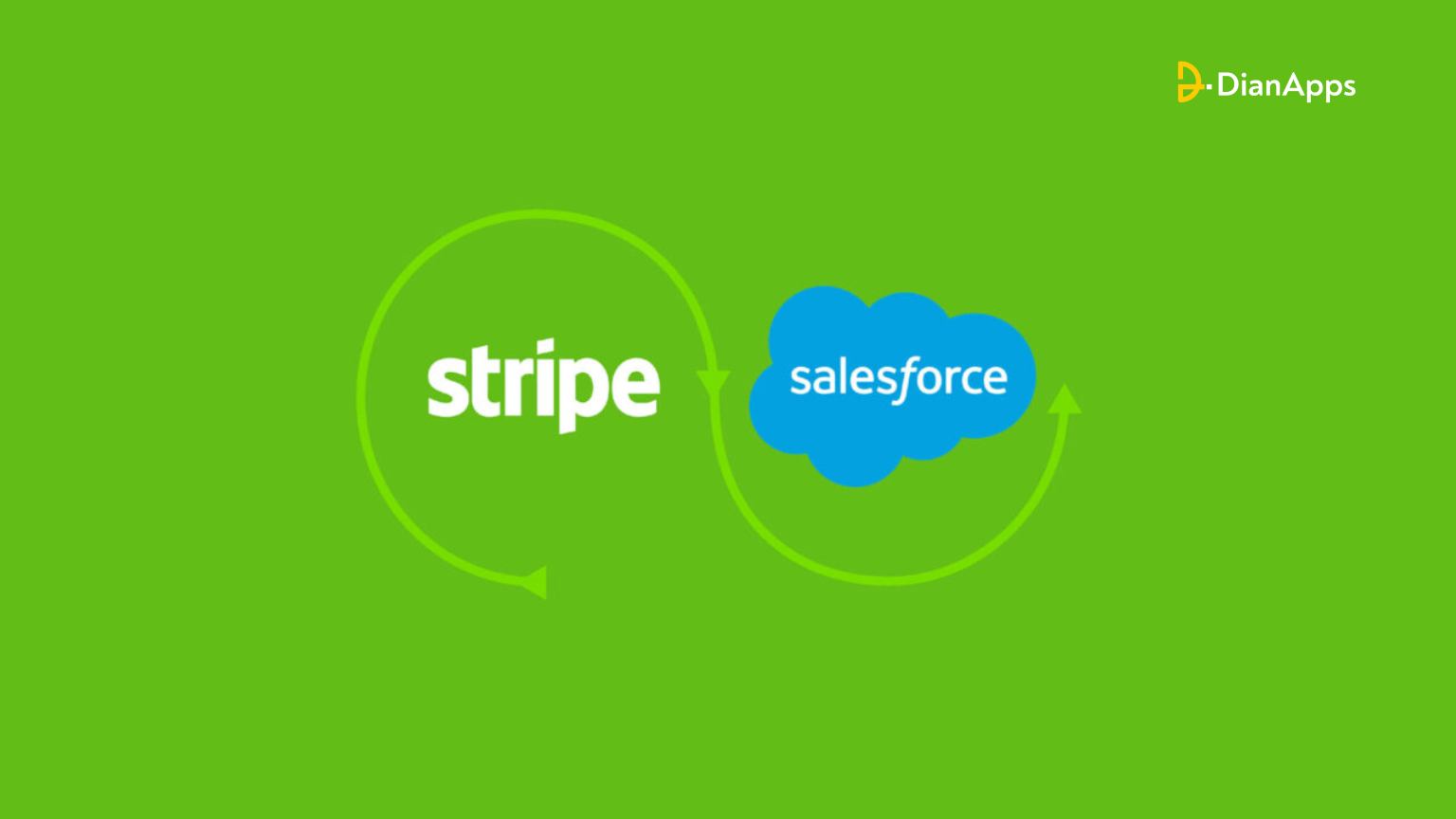Developing custom Salesforce apps to meet specific business needs
Welcome to the world of Salesforce, where businesses can streamline their operations and boost productivity with custom-built applications. As companies continue to grow, they face unique challenges that require tailored solutions. This is where custom Salesforce apps come in, providing businesses with the flexibility and functionality they need to meet their specific needs.
Developing a Custom Salesforce application can seem like a daunting task, but it doesn’t have to be. With the right approach and expertise, businesses can create apps that are tailored to their unique requirements and help them achieve their goals.
In this blog post, we’ll explore the benefits of developing custom Salesforce apps, and how they can help businesses streamline their operations. So hang in there!
What is a custom app in Salesforce?
An ordered list of objects or tabs, along with a name and description, make up a bespoke application, which is made to meet a particular business needs. By providing specialized functionalities not included in the basic Salesforce functionalities, custom applications can be utilized to automate corporate operations, improve customer engagement, and increase productivity. Applications created by business owners or independent developers can be sent securely and confidentially to customers. You should choose to create a salesforce application for a number of reasons.
The next part discusses a thorough description of the motivations behind and advantages of custom Salesforce app development.
Benefits of Custom Salesforce App Development
1. Enhanced productivity and efficiency
Businesses may automate their processes and workflows with the help of custom Salesforce app development, which cuts down on the time and effort needed to complete particular activities. These apps enable firms to optimize operations while reducing the possibility of human error. Because of the increased production and efficiency, businesses can concentrate on what they do best..
2. Industry-oriented
One of the best benefits of having a custom salesforce app is how well those apps meet the needs of various businesses. Every operation may be made better by implementing industry-specific, bespoke salesforce apps, from order management to financial management.
3. Increased customer satisfaction
By integrating custom applications with the salesforce platform, businesses can offer a more individualized level of support to their clients. Real-time access to consumer data can be made possible via customized applications, enabling businesses to respond to questions and concerns from customers right away.
Know How Salesforce Development can help you drive consumer engagement.
4. Competitive advantage
Businesses gain a competitive advantage with custom salesforce apps by providing unique capabilities that their competitors do not have. Designing customized applications can enable businesses to address their needs and challenges, differentiating themselves in the market.
5. Integration
Over and above, custom apps can help businesses integrate with other systems and applications. These applications can be designed to work with other systems such as ERP or marketing automation software, ensuring that businesses can seamlessly integrate their other tools and systems.
6. Scalability
It helps businesses scale their operations as they grow. A bigger number of data and transactions can be handled by customized apps, guaranteeing that organizations can keep up with the rising demand.
Developing a custom salesforce app – Factors to Consider
1. Infrastructure
When building a custom Salesforce app, it’s important to consider your infrastructure needs. First, you need to determine your goals and what you hope to achieve with the app. Next, you need to decide how to modify your existing business processes to achieve these goals. Keep in mind that complex processes may require different tools to achieve your desired results. Additionally, consider your reporting needs during the UI/UX design phase to avoid complexity later on. Make sure to weigh the benefits of your custom app against any potential disruptions to your business processes.
2. Determine Pre-existing Solutions
Before building a custom Salesforce app, explore pre-existing solutions that could reduce the need for customization. Look for existing objects or apps that can be leveraged to achieve your goals. Consider the complexity of any necessary code changes and updates. Additionally, check the AppExchange for pre-existing solutions that can perform similar tasks or enhance your custom app.
3. Avoid Contaminated Data
Maintaining data integrity is crucial for any Salesforce app. Use workflow field updates, default values, and validation rules to enhance usability and prevent errors. Utilize unique External ID fields when integrating with external systems, and set up duplicate and matching rules to prevent the entry of duplicate information.
4. User Experience
A good user experience is critical for the success of any custom Salesforce app. Design a user-friendly interface that can be easily navigated and visually appealing. Use Lightning Components to enhance the user experience and consider leveraging the Salesforce mobile app for mobile users.
5. Maintain Simplicity
When building a custom Salesforce app, strive for simplicity. Avoid overcomplicating processes and make sure that your app is easy to use and understand. Consider using a different tool or integrating a third-party app with Salesforce development services if your process becomes too complex.
6. Use Agile Methodology
Using agile methodology is an effective way to develop a custom Salesforce app. Break down the development process into small, manageable chunks and iterate as needed. This approach allows for more flexibility and enables you to adapt to changes in requirements or business needs.
7. Have Cloud Storage
Storing your data in the cloud can provide numerous benefits for your custom Salesforce app. Cloud storage is scalable, cost-effective, and provides access to data from anywhere. Additionally, Storage of Salesforce cloud services can enhance security by providing automated backups and disaster recovery options.
8. Future-Focused Plan
When building a custom Salesforce app, it’s important to have a future-focused plan. Consider the scalability of your app and how it can handle increased data volumes and user traffic. Plan for future growth and consider using asynchronous processing and bulk processing to optimize performance. Additionally, create a support plan that includes regular updates and bug fixes, and ensure that you have adequate resources to maintain the app over time.
How to create a custom salesforce app?
1. Identify your target audience
Who is your target audience? Developing unique personas enables you to predict the demographics of your users, the frequency of their app usage, and the features they’ll require. With all this information at hand, you can create thorough profiles of your users and determine which Salesforce admin features they prefer.
2. Create a prototype
Build an interdependent prototype for testing purposes. The RAD (Rapid Application Development) checkbox methodology is the best way to get users’ feedback quickly and consistently while still allowing you to make the necessary changes. Before moving on to the following launch stage, make sure to test new features and validate user experience.
3. Develop an MVP
Before launching the MVP of Mobile app, release it to your users for testing. As a result of this, you can benefit from feedback from applications that are used in the real world. By providing your users with cutting-edge updates that incorporate new, compatible technologies, continuous delivery, and encryption to safeguard their data, you’ll continue to be concerned about and keen on individual privacy.
4. Ensure your application stands out
You have the latest features and updates, but users will move to your competitors if your application has nothing unique. Ensure that users can access the latest features and updates regardless of their operating system, and monitor sign-in functionalities to eliminate bugs and speed up the Quality assurance process.
5. Choose between web and mobile applications
One of the most popular misconceptions today is that web and mobile app development can be interchanged. Knowing the type of application you’re building will help you determine the design, UX app development software you will use, as well as the deployment.
Mobile applications are restricted to mobile devices. However, they can access internal resources such as GPS, photos, and contacts. They are also faster and can operate offline. Web applications, on the other hand, work as any browser.
Users are not required to download or install them on their PCs. They can easily work on your mobile device as well. While both mobile and web apps can be customized, you must ascertain the preferences of your target audience.
6. Determine the cost of custom app development
Depending on your end goal, a variety of variables can affect how much your application will cost. For all operating systems, these include the creation, testing, maintenance, functionality, and updating to new features.
Price points depend on various elements. It’s crucial to make sure you have everything users need. Nevertheless, you don’t need to spend a fortune to have a user-friendly and useful application. Salesforce allows you to develop custom applications with prebuilt templates and embed dashboards. And fast deployment.
7. Building a salesforce custom app
There are two sorts of Salesforce applications: Lightning and Classic. Lightning apps are built and managed in Lightning experience, while classics are developed and managed in Salesforce Classic. Hire Salesforce Developers to alter both types of applications in order to suit users’ requirements. Classic apps consist of a variety of standard and user-defined tabs, including:
Standard objects like Home, groups, the core chatter feed, and people.
- Lightning component tabs
- Visualforce tabs
- Web tabs
- Custom objects
- Canvas applications through visual force tabs
Check this out to get a complete overview of salesforce application development lifecycle
Ready to Develop a Custom Salesforce App
Offering your client a Salesforce custom application allows them to enjoy more value from the app and your solution. Additionally, it can increase user productivity while bringing efficiency to their business processes. In the end, it aids organizations in achieving their special objectives and differentiating themselves from rivals.
You must take into account the numerous topics covered in this article if you want to build a useful app for your users. Use it to learn more about creating Salesforce apps. A professional developer is not required to create an app. Hire a Salesforce developer from DianApps, a reputable company that offers services for creating Salesforce apps. We can help you create a useful application for your business.
Your implementation will go more smoothly if you take the necessary time in the planning and design phases and adhere to our advice. So without further ado, get in touch with the leading Salesforce consulting company, DianApps!





Comment (1)
[…] Salesforce also offers programmatic tools for developing custom Salesforce apps to meet specific business needs: […]